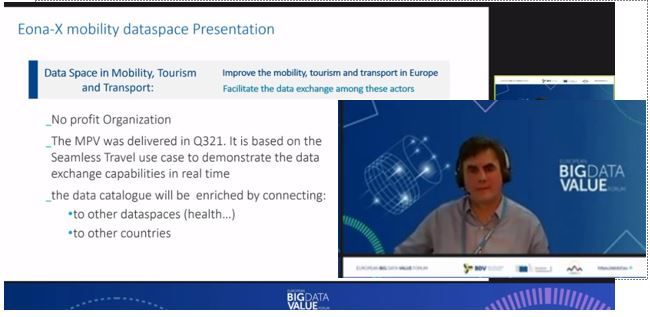DATASPACES: SECONDARY ROADS OR HIGHWAYS?


Juan Giron
Global Corporate Communications at Amadeus IT Group SA
A window open to a future we already have here. That’s what the European Data Value Forum held today at Ljubljana (Slovenia) brought along. Amadeus’ Jean-François Cases commented: “In Europe, we have already some 15 dataspace verticals for energy, industry and so on showing a wide diversity.”
He presented the mobility dataspace, Eona-X, that he and his team are working on: “a non-profit organization focused on transport, mobility and tourism in Europe” aiming at being “connected to other dataspaces in the same or different verticals in other countries”, he explained.
“Data spaces have to give a solution to problems not solved previously. Sometimes described as a theoretical set of set of data around a given area vertical or even at a cross-vertical global-European level, we in industry tend to call dataspaces a set of companies trying to organize something together just by sharing their data”.
Cases clarified that: “Hyperscalers [a.k.a. GAFA: Google, Apple, Facebook, Amazon] are not the issue, because dataspaces are not a matter of technology but of trust, how you share data and how you build the business of sharing (…) One thing is the cloud, another thing are dataspaces (…) The novelty of this is creating value together.
The challenges are: creating a common good jointly with different companies, because not everybody recognizes that together they are better than alone. To start this common good there is a need for public funding. And since many initiatives’ funding are national, and therefore it’s difficult to come out from national context (…), we need a higher funding involvement (that seems to be coming) at European level. I see dataspaces like the new tool where companies share the data they want to share on the conditions they want to put on the market. Just the opposite of a data lake”. Referring to the very important debate if dataspaces should be a profit or a cost center, Cases asked the audience: “Do we wish our dataspaces to be like a free road system that is paid by the taxpayer to foster the business of the area where it is deployed (cost center)? Or do we want them to be like a highway toll system that is managed by a consortium for profit?